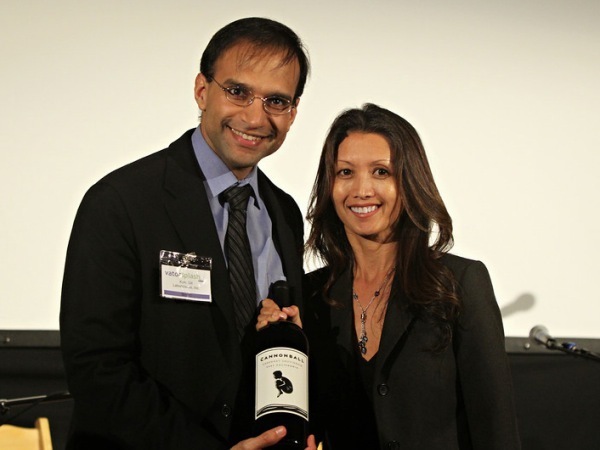

Vator hosted its first Splash of 2011 last night, celebrating entrepreneurship once again by bringing together around 400 founders, investors and other tech stars under one roof at the Cafe du Nord in San Francisco. After beating out rivals in a competition that featured hundreds of entrants and thousands of votes, 10 promising up and coming finalists pitched their startups at Splash.
The startup to know, however, is LaborVoices, which won the popular vote last night. As the Vator Splash winner, LaborVoices earned itself a professional video of their presentation, a one-hour sit-down meeting with Javelin Venture Partners, a free demo table spot at the next Vator Splash, the opportunity to be an online judge for the next Splash event, and a $500 HP Notebook Projector, courtesy HP Startup Ecosystem Programs. Oh, and a bottle of Cannonball wine.
Based in Sunnyvale, Calif., LaborVoices is a for-profit company aiming to end labor abuses by enforcing labor market transparency. The company provides a portal for migrant worker job reviews. It’s probably the first of its kind: a platform for migrants to check up on the backgrounds for prospective employers and conditions in their workplace.
LaborVoices describes itself as “a cross between Yelp and Ask.com,” letting users ask questions over the phone about employers. Answers are returned (anonymously) from workers currently employed there.
All the data is transparent–to both workers and the employer–encouraging the latter to improve their scores, just like businesses on Yelp. Except LaborVoices is going after a serious social cause:
While the exploitation and trafficking of workers is well-documented, the capacity for those same workers to help each other and themselves has changed dramatically with the advent of near-ubiquitous mobile technology. Any given worker is vulnerable because she must rely on a very poor information sources—they don’t know whom to trust. With greater, earlier access to accurate reputations of the players in her labor supply chain, she will fact-check the rumors she hears, and make more informed choices at the most critical stage–pre-migration. When workers are well-informed, employers, labor recruiters, and service providers are forced to compete for workers, rather than the other way around.
LaborVoices is headed by founder and CEO Dr. Kohl S. Gill, who served as an AAAS Science and Technology Policy Fellow for the U.S. Departments of Energy and State. The rest of the 12-person team is composed of business and communications associates and research assistants.
As of now, the service is running as a pilot in Bangalore, India, but the company plans to reach one million users by 2012.




















